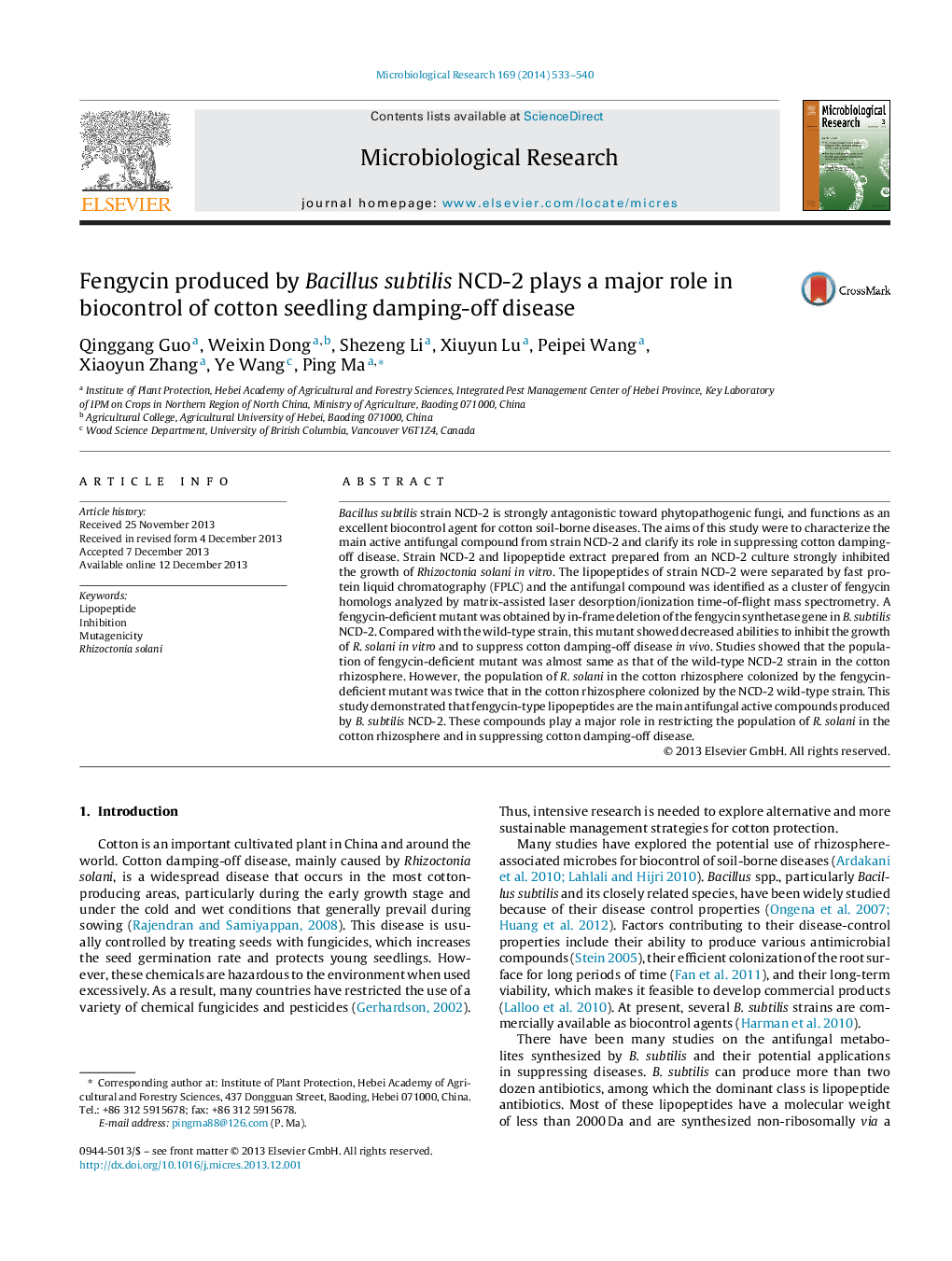| Article ID | Journal | Published Year | Pages | File Type |
|---|---|---|---|---|
| 2092226 | Microbiological Research | 2014 | 8 Pages |
Bacillus subtilis strain NCD-2 is strongly antagonistic toward phytopathogenic fungi, and functions as an excellent biocontrol agent for cotton soil-borne diseases. The aims of this study were to characterize the main active antifungal compound from strain NCD-2 and clarify its role in suppressing cotton damping-off disease. Strain NCD-2 and lipopeptide extract prepared from an NCD-2 culture strongly inhibited the growth of Rhizoctonia solani in vitro. The lipopeptides of strain NCD-2 were separated by fast protein liquid chromatography (FPLC) and the antifungal compound was identified as a cluster of fengycin homologs analyzed by matrix-assisted laser desorption/ionization time-of-flight mass spectrometry. A fengycin-deficient mutant was obtained by in-frame deletion of the fengycin synthetase gene in B. subtilis NCD-2. Compared with the wild-type strain, this mutant showed decreased abilities to inhibit the growth of R. solani in vitro and to suppress cotton damping-off disease in vivo. Studies showed that the population of fengycin-deficient mutant was almost same as that of the wild-type NCD-2 strain in the cotton rhizosphere. However, the population of R. solani in the cotton rhizosphere colonized by the fengycin-deficient mutant was twice that in the cotton rhizosphere colonized by the NCD-2 wild-type strain. This study demonstrated that fengycin-type lipopeptides are the main antifungal active compounds produced by B. subtilis NCD-2. These compounds play a major role in restricting the population of R. solani in the cotton rhizosphere and in suppressing cotton damping-off disease.
